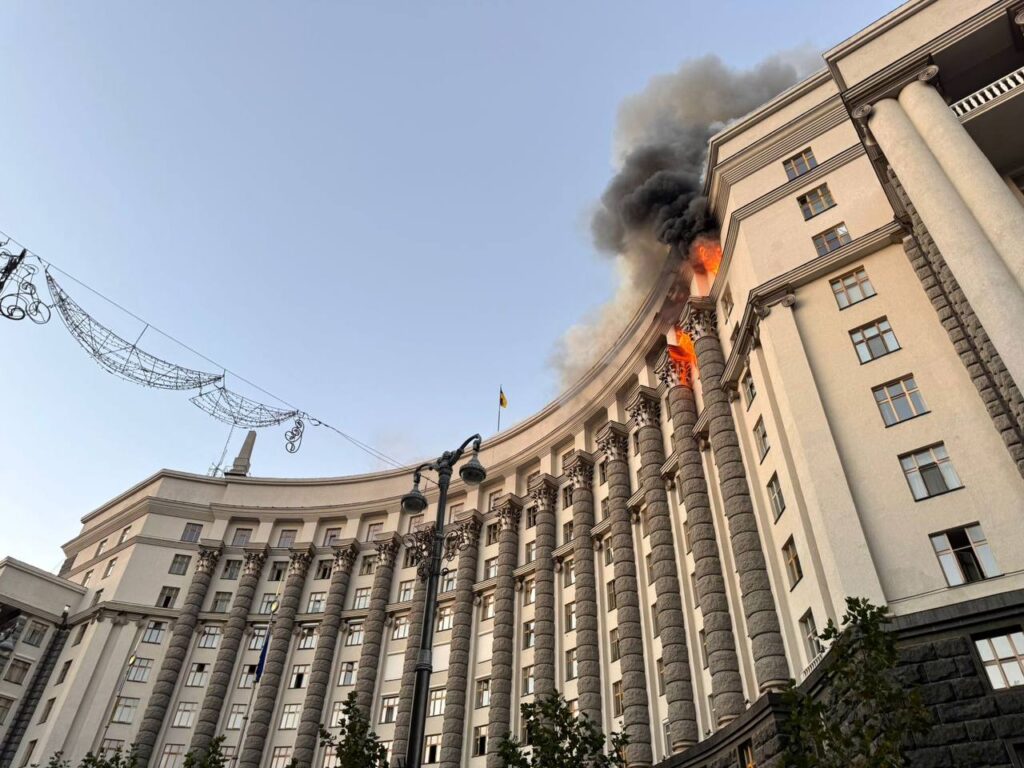Russian Iskander missile that hit Ukraine’s Cabinet days ago may contain US, UK, Japanese parts

Russia’s 7 September missile attack on Kyiv’s Cabinet of Ministers building used an Iskander 9M727 cruise missile containing more than 30 foreign-made components, including parts manufactured in the US, UK, Japan, and Switzerland, according to Ukrainian presidential adviser on sanctions policy, Vladyslav Vlasiuk.
Amid the ongoing Russo-Ukrainian war, Russia continues daily drone and missile attacks on Ukrainian cities. Ukraine’s analysis of wreckage and unexploded munitions reveals Moscow’s extensive use of foreign-made components in the production of its drones and missiles.
Missile strike on Cabinet building used Western tech
Vlasiuk confirmed the building was struck with a 9M727 Iskander missile. The warhead did not explode, he said, likely due to the missile being damaged. However, the fuel ignited and caused a fire on the roof of the Cabinet building.
According to Vlasiuk, a previously examined missile of the same model contained 35 American-made parts, five Belarusian parts, and 57 Russian ones. The missile also included one component each from Japan, the UK, and Switzerland.

Foreign manufacturers identified in the missile included Texas Instruments, Analog Devices, and Altera from the US, College Electronics Ltd from the UK, Fujitsu from Japan, and Traco Power from Switzerland.
Belarusian company Integral was also listed, alongside multiple Russian firms such as Mikron, Production Association “Strela”, Angstrem, Research and Design Bureau “Eksiton”, and Karachevsky Plant “Elektrodetal”.
Shift in missile component origin revealed
Vlasiuk noted that compared to missiles analyzed in previous years, the number of US and European components had declined. In contrast, the use of Russian and Belarusian-made components increased.
Record missile and drone assault on 7 September
On 7 September, Russia launched an unprecedented assault on Ukraine using 605 explosive drones and 13 missiles. One of the missiles struck the roof of the Cabinet of Ministers building in central Kyiv.
The deadliest attack that day targeted a nine-story apartment building in Kyiv’s Sviatoshynskyi district. The blast at the residential building killed three civilians, including a baby, and injured 11 others. Ukraine’s State Emergency Service (DSNS) completed the search and rescue operation at the site on 8 September. Rescuers managed to save seven residents from the rubble.